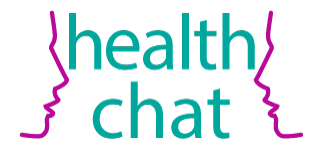Addressing COVID-19 Misinformation
Misinformation online can confuse consumers and influence people to dismiss vital public health advice. Health Chat team members from Klein Buendel, the University of Connecticut, and Colorado State University have published analyses of misinformation from a social media study in the Journal of Public Health Management and Practice. The purpose of the study was to examine how an epidemiological procedure for monitoring, diagnosing, and responding quickly to misinformation among members of a Facebook group may have affected debate and dropout among group members.
Facebook group participants were 303 mothers of adolescent daughters. The Facebook group was administered by a community manager. The social media feed varied the source of information in posts on four topics: social distancing, COVID-19 vaccines, digital and media literacy, and family communication about COVID-19. Mothers received one social media post each weekday in three randomly assigned Facebook private groups, covering all four topics plus one additional post on a positive non-pandemic topic to promote broad engagement. Posts in the three groups had the same messages but differed by links to information from government agencies, near-peer parents, or news media sources in the post.
The community manager identified misinformation in mothers’ comments. Misinformation was defined as COVID-19 information in opposition to recommendations from the Centers for Disease Control and Prevention, National Institutes of Health, and/or World Health Organization. Misinformation took several forms. In some comments, mothers directly presented false information or expressed their own negative opinions or opposition toward COVID-19 prevention. In other comments, mothers presented misinformation indirectly.
Research methods and analyses are detailed in the Journal of Public Health Management and Practice paper. Most misinformation comments were in response to posts about vaccination, followed by non-pharmaceutical interventions, digital and media literacy, and family communication. The responsive epidemiological protocol exposed the mothers to credible information and appeared to prevent debate and dropout of Facebook group members.
This research was funded by a grant and supplement from the National Cancer Institute (CA192652). Dr. David Buller from Klein Buendel and Dr. Sherry Pagoto from the University of Connecticut were the project’s Multiple Principal Investigators. Additional authors on this publication include Joseph Divito from the University of Connecticut; Dr. Kim Henry from Colorado State University; and Dr. Barbara Walkosz, Dr. Gill Woodall, Julia Berteletti, and Alishia Kinsey from Klein Buendel.

